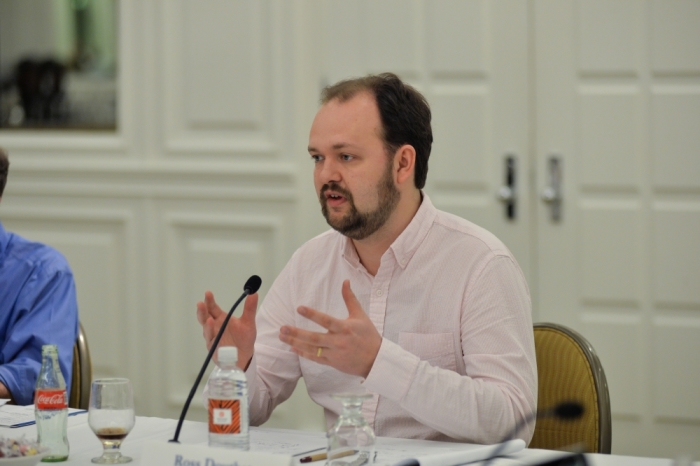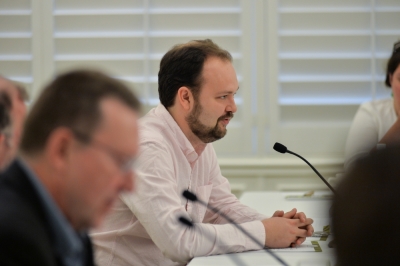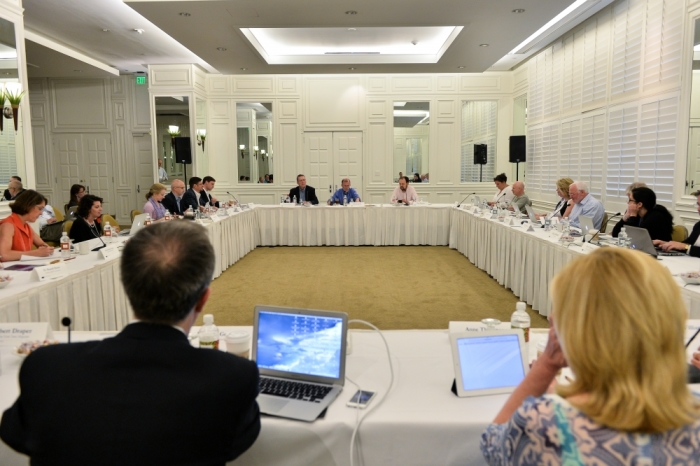Liberals Haven't Abandoned Concept of Sin But Definition of Sin Has Changed, Ross Douthat Says

MIAMI BEACH — The concept of sin is not gone but the actions that are considered sinful have changed in four ways, Ross Douthat, a columnist for The New York Times and author of Bad Religion: How We Became a Nation of Heretics, recently argued.
While some of Douthat's remarks at the Ethics and Public Policy Center's Faith Angle Forum on March 24 were aimed broadly at American culture, most of his comments and examples were about secular Americans. When he reads publications or watches programing from a secular Left perspective, Douthat said he does not "get a sense that secular America has lost a sense of sin" because some "very important evils are being debated."

Douthat was the respondent on a panel with Dr. Cornelius Plantinga, senior research fellow at the Calvin Institute of Christian Worship. Plantinga spoke about the loss of an understanding of sin in American culture, especially in evangelical churches. Douthat offered that it is not only helpful to think about the loss of sin, but the transformation of sin as well.
Watching both the conservative Fox News or the liberal MSNBC, Douthat said one will have "a very strong impression that the people responsible for those shows believe that sin is alive and well and it's concentrated on the other side of the political spectrum."
First, there has been a "structuralization of idea of sin." On Ivy League campuses, there is much talk about structural evils that look at society as a whole, such as racism, sexism, homophobia or a rape culture. Though secular, these ideas have religious roots, Douthat says, in the "social gospel" that became popular in the early 1900s.
Concerns over structural sins explains the "hyper scrutiny of the content of language" found among many liberals. Recent examples can be found in discussions over "mansplaining" and "micro-aggressions."
Second, sin has changed to concerns about physical health, spiritual health, and human flourishing. People talk about diet, physical health or mental health in a moralistic way. Douthat views this as a different way of talking about sin among those who are unsure what sin is.
His example was former New York Mayor Michael Bloomberg who led campaigns against teen pregnancy and obesity during his tenure. Bloomberg is a "moralist," Douthat insisted, who "cares strongly about choices made by New Yorkers."
Third, sin has been transformed by a disentangling of the legal from the moral. The only sins that Americans all agree are sins are those that are most clearly evil, or "the worst of the worst." The everyday, interpersonal sins that everyone struggles with are less agreed upon.
"Everyone knows Hitler is evil," Douthat said, but Americans have "lost the ability to see evil that can't be met my Normandy landings."
Fourth, Douthat said it may be that what has been lost is not a sense of sin but a sense of penance. Citing theologian Dietrich Bonhoeffer's notion of "cheap grace," or forgiveness without repentance, he said people recognize certain actions are wrong but do not expect actions of repentance.
Douthat's example was former South Carolina Governor Mark Sanford (R). Sanford cheated on his wife while in office and was soon re-elected to a seat in Congress. Everyone knows that cheating on one's wife is a sin, the columnist said, but what is different today is that politicians who cheat on their wife can be back in office much sooner and without any form of penance.
Plantinga described Douthat's comments as "illuminating" and offered another example of how the notion of sin has changed. It used to be that homosexual acts were considered sinful, he noted, but today criticism of homosexual acts is considered sinful.





























